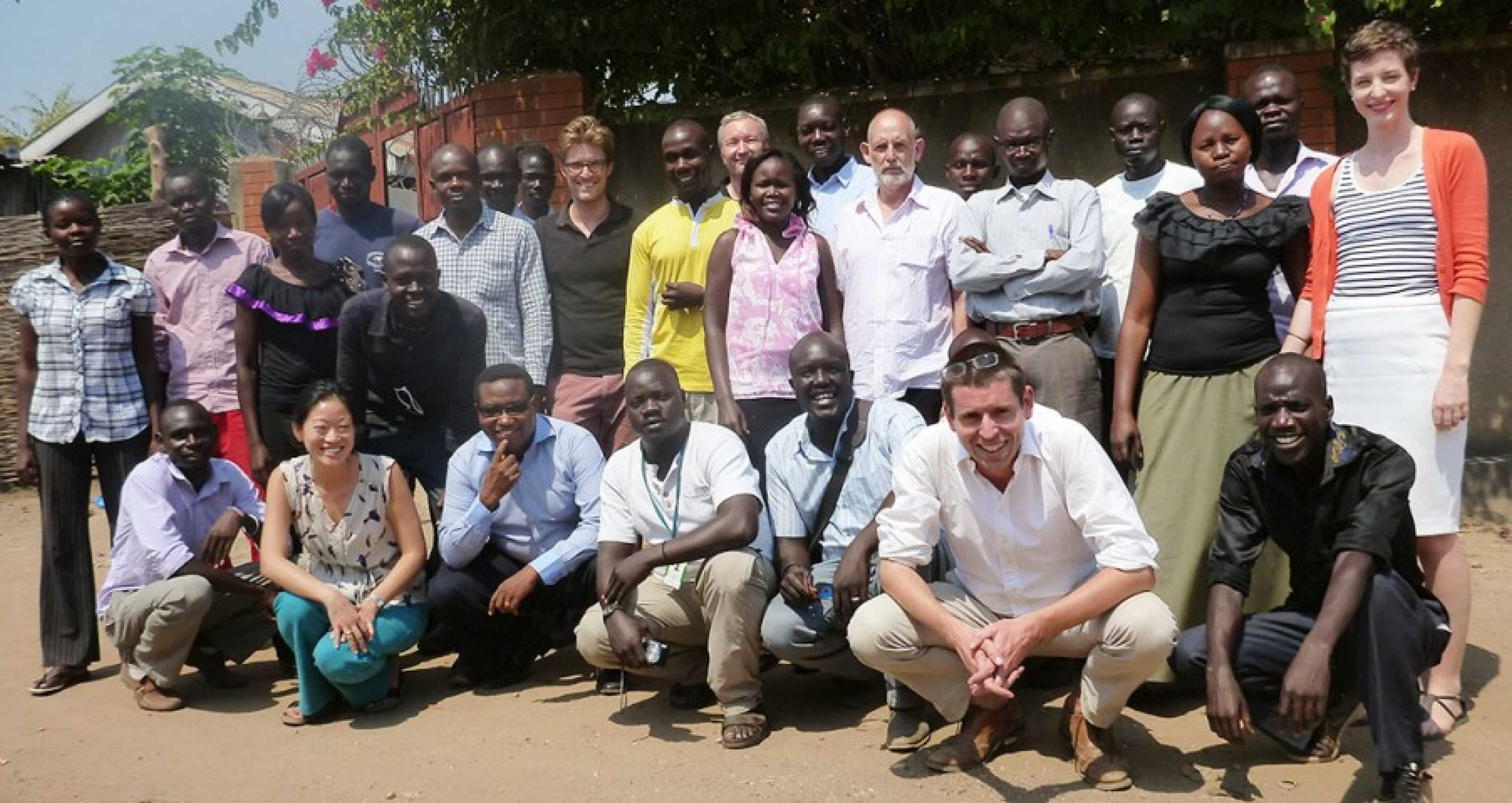We have been operating for six years now (and before that for several years with Booz & Company), we have an outstanding team, and we are proud that we deliver hard, fast and at scale for the poor, in the toughest places.
In the past few weeks, there have been a number of things to celebrate:
- CGA alumna Akuja Mading de Garang, who is the Team Leader of Girls’ Education South Sudan, a UK Aid project we work on, with BMB Mott, receiving an MBE from the Queen, the first British-South Sudanese person known to have had such an honour: see this link to an interview with her on BBC World Service
- More pupils – 1.38m, as of today – are enrolled in South Sudan’s schools than ever before, despite the conflict
- Minister Deng Deng Hoc Yai announced last week that 1479 South Sudanese schools have passed the requirements to start receiving teacher incentives of $40 a month, as part of the EU IMPACT project that we are working on, also under BMB Mott, and those are going out now: see sssams.org/impact/profile.php for details
- Our teams across the continent are busy working on, to take a few examples, an exciting new cash transfers task in Kenya, for World University Service of Canada, with funding from UK Aid’s Girls’ Education Challenge, and on health worker attendance monitoring in Sierra Leone, under UNFPA, also with UK Aid funding – see hrhsl.org for near-real-time updates from the Districts
- Our friends in the Dioceses of Lainya and Yei have been glad of the financial support we’ve been able to give them towards rebuilding after the destruction of the last two years
But we have been thinking about whether our structure, as a for-profit-SME serves that core purpose of delivering for the poor.
We liked this structure because it gave us a strong incentive to deliver (if we didn’t, we were literally out of a job), a strong incentive to employ staff from the countries in which we work (and pay them well) and young talent, and flexibility to invest in developing systems and intellectual capital, and doing a really good job.
But there are ways in which it doesn’t serve that purpose quite as well as it did:
- The ratio of working capital to turnover for an SME in the development sector is high relative to other sectors, and to bigger firms: Juba and Mogadishu are, perversely, expensive places to live and work; SMEs are often subcontractors to bigger firms, who generally pay you when they have been paid by the client – thus more working capital requirement. We are profitable, and solid, but that requires a lot of care and discipline.
- What you need changes over time: what you need structurally for supporting systems that are relatively stably in place, and delivering at scale, may be different from what you needed when you were starting out with some good ideas and a big smile. You have a duty to be responsible about sticking with things, as we have tried to in South Sudan since 2006.
- If, as the development sector mostly is, you are paid from other people’s money, your licence to operate depends not only on delivering for the poor, but on the views of the people who gave that money, and of their democratic representatives. In our case, that typically means EU and UK taxpayers, in one form or another:
- There is clearly less appetite, and sadly, trust, than there was for for-profit organisations in this sector – partly because of the behaviour of some, and partly because there is some evidence that, when you are buying relatively complex services, you may be better off buying from someone whose ethos is demonstrably aligned with yours, than someone who has a profit motive – see Marieke Huysentruyt’s article: https://www.researchgate.net/publication/268292019_Development_Aid_by_Contract_Outsourcing_and_Contractor_Identity
- In a context of more uncertainty, political and other, those charged with spending development money, not unreasonably, become more cautious: they spend out the pipeline of what they have already committed, they “buy IBM” rather than take the risk of small firms or innovative solutions
- That means we have, in a specific sense, the ‘worst of all worlds’:
- for-profit, in a context where there is decreased enthusiasm for profit-making organisations, but making a relatively small percentage profit this year, and not even that, last year
- small, when some clients want the assurance of bigger outfits – and/or have to shop in very big ‘lumps’
Let down the net (I got 153 fishes, but…)
At our Board meeting last week, we therefore agreed to have a look at a range of structural options over the next few months.
The options relate to how we structure to deliver, not what we deliver, which will not change, save to grow.
Options that you could imagine could include:
- Becoming a social enterprise, like our friends at Aid Works
- Combining with an NGO that shares our values and appetite to be bold to deliver for the poor
- Combining with another firm if, and only if, that would genuinely help us deliver harder, faster and at greater scale for the poor
- Or indeed deciding, that our current arrangement is the “worst system apart from all the others”, and continuing, when we make profits, to reinvest some, and give back
Our Board have mandated us to make sure that whatever we do:
- Our outstanding staff can still do the job they love, in the excellent way that they do
- It gives the best possible Platform for delivering impact for the poor in ways in which we have comparative advantage
And we will keep you updated about how we get on.
Charlie Goldsmith, 4th July 2017


